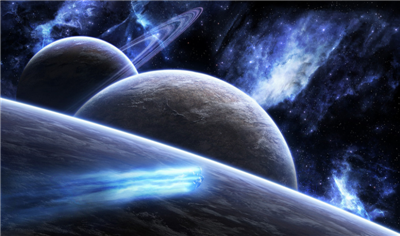What is extraordinary from our point of view is how well it turned out for us. If the universe had formed just a tiny bit differently—if gravity were fractionally stronger or weaker, if the expansion had proceeded just a little more slowly or swiftly—then there might never have been stable elements to make you and me and the ground we stand on. Had gravity been a trifle stronger, the universe itself might have collapsed like a badly erected tent, without precisely the right values to give it the right dimensions and density and component parts. Had it been weaker, however, nothing would have coalesced. The universe would have remained forever a dull, scattered void.

This is one reason that some experts believe there may have been many other big bangs, perhaps trillions and trillions of them, spread through the mighty span of eternity, and that the reason we exist in this particular one is that this is one we could exist in. As Edward P. Tryon of Columbia University once put it: "In answer to the question of why it happened, I offer the modest proposal that our Universe is simply one of those things which happen from time to time." To which adds Guth: "Although the creation of a universe might be very unlikely, Tryon emphasized that no one had counted the failed attempts."












